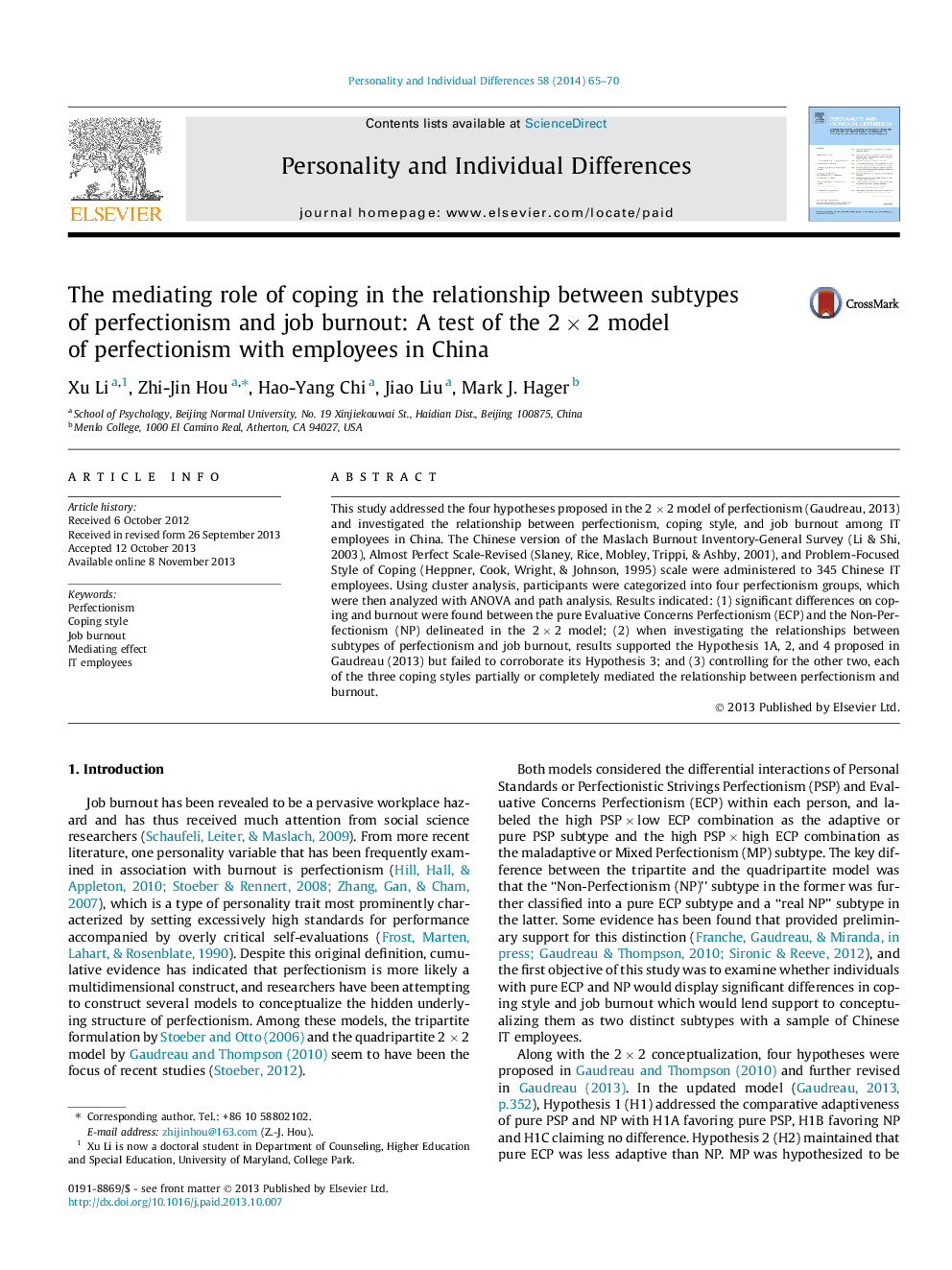| Article ID | Journal | Published Year | Pages | File Type |
|---|---|---|---|---|
| 890857 | Personality and Individual Differences | 2014 | 6 Pages |
•We examine the perfectionism, coping style and burnout in Chinese IT employees.•Different subtypes of perfectionism display different coping styles and burnout.•Adaptiveness of perfectionism subtypes: pure PSP > NP > MP and pure ECP.•Coping style mediates the predicting effect of perfectionism on burnout.•Problem-focused coping is a protective factor.
This study addressed the four hypotheses proposed in the 2 × 2 model of perfectionism (Gaudreau, 2013) and investigated the relationship between perfectionism, coping style, and job burnout among IT employees in China. The Chinese version of the Maslach Burnout Inventory-General Survey (Li & Shi, 2003), Almost Perfect Scale-Revised (Slaney, Rice, Mobley, Trippi, & Ashby, 2001), and Problem-Focused Style of Coping (Heppner, Cook, Wright, & Johnson, 1995) scale were administered to 345 Chinese IT employees. Using cluster analysis, participants were categorized into four perfectionism groups, which were then analyzed with ANOVA and path analysis. Results indicated: (1) significant differences on coping and burnout were found between the pure Evaluative Concerns Perfectionism (ECP) and the Non-Perfectionism (NP) delineated in the 2 × 2 model; (2) when investigating the relationships between subtypes of perfectionism and job burnout, results supported the Hypothesis 1A, 2, and 4 proposed in Gaudreau (2013) but failed to corroborate its Hypothesis 3; and (3) controlling for the other two, each of the three coping styles partially or completely mediated the relationship between perfectionism and burnout.
